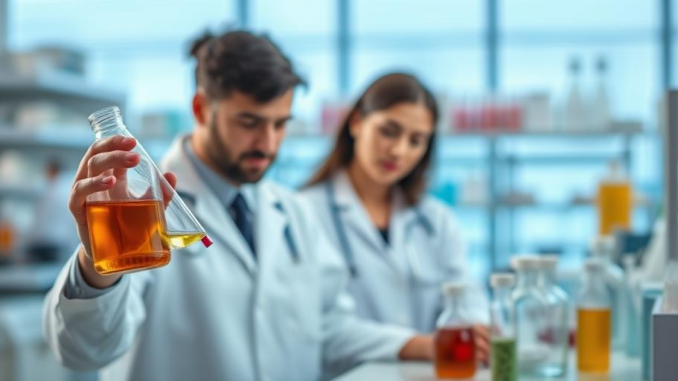
Summary
New research suggests that GLP-1 receptor agonists, a class of diabetes medications, may be effective in reducing alcohol consumption and cravings. Studies have shown promising results, particularly in individuals with obesity, with some participants experiencing significant reductions in alcohol intake. While further research is needed, these findings offer a potential new avenue for treating alcohol use disorder.
** Main Story**
Hey everyone, there’s some fascinating stuff emerging about diabetes meds and their potential impact on alcohol dependence. Who knew, right? It turns out those GLP-1 receptor agonists, you know, the ones used for type 2 diabetes and obesity, might just have a surprising side effect: curbing alcohol cravings. This could be a total game-changer for folks struggling with alcohol use disorder, offering a new avenue for treatment.
Promising Research on the Horizon
So, what’s the buzz? Well, several studies have been digging into this, and the initial results are pretty exciting.
For example, one study took a look at Reddit posts and conducted a remote study on people using semaglutide and tirzepatide (both GLP-1 agonists). And guess what? They saw a decrease in alcohol cravings and how much people were drinking. Another study focused specifically on semaglutide – Ozempic or Wegovy, if you’ve heard of it – and, yup, it also seemed to help reduce alcohol cravings, the amount people drank, and the number of heavy drinking days. It’s important to note that correlation doesn’t equal causation, but it does warrant further investigation.
Then there’s the University of Nottingham study, which looked at how GLP-1 receptor agonists affected alcohol consumption. It suggests it may be linked to the brain’s reward center. Now, the overall results weren’t a slam dunk, but here’s the interesting part: a subgroup analysis showed positive effects for people with obesity. Those participants with a BMI over 30 taking exenatide showed significant reductions in brain reward center cue reactivity when shown alcohol-related cues. That is really interesting stuff if you ask me. Also, another analysis found that participants taking dulaglutide were 29% more likely to cut back on alcohol compared to those on a placebo. Not bad, right?
All of this suggests that GLP-1 receptor agonists might be tweaking the brain’s reward system, impacting how people react to alcohol cues, and possibly lessening the urge to drink. This is especially interesting for those with obesity, who might have stronger reward responses to alcohol. Makes you wonder, doesn’t it?
Decoding the Mechanism
Okay, so how does this actually work? The exact mechanism is still a bit of a mystery, but there are a couple of theories floating around. One idea is that these medications mess with the brain’s reward pathways, maybe by fiddling with dopamine levels – that’s the neurotransmitter linked to pleasure and motivation. Another thought is that GLP-1 receptor agonists might dial down the rewarding effects of alcohol, making it less appealing. Finally, it’s possible these meds also influence gut hormones that play a role in appetite and satiety, which could indirectly affect alcohol consumption. It’s like a domino effect, maybe?
The Road Ahead: Future Research
Now, the potential for GLP-1 receptor agonists in treating alcohol use disorder is pretty huge, especially since current treatments can be hit or miss. These medications could be a completely new way to tackle alcohol dependence, especially for those who haven’t responded to other options.
That said, we need more research, obviously. We need to understand the long-term effects and figure out the best way to use these medications for alcohol use disorder. Larger clinical trials are a must to confirm these early findings and see how different GLP-1 receptor agonists work across different populations. I mean, we can’t just jump the gun, can we?
A Few Things to Keep in Mind
Look, while the initial findings are promising, it’s crucial to remember that more research is needed to really nail down the efficacy and safety of using GLP-1 receptor agonists for alcohol use disorder. If you’re struggling with alcohol dependence, talk to a healthcare professional. They can help you explore the right treatment options and see if these medications might be a good fit for you. Also, don’t forget about the potential side effects of GLP-1 receptor agonists – nausea, vomiting, and diarrhea are all possibilities.
But all things considered, the research on GLP-1 receptor agonists offers a spark of hope in the ongoing fight against alcohol addiction. Who knows, as researchers keep digging into the mechanisms and potential uses of these medications, we might be on the verge of a whole new chapter in addiction treatment. The idea that diabetes medications could help combat alcohol dependence? It’s a testament to how interconnected everything is and the power of science to find unexpected solutions to tricky health issues. It’s kind of mind-blowing when you think about it.


Be the first to comment